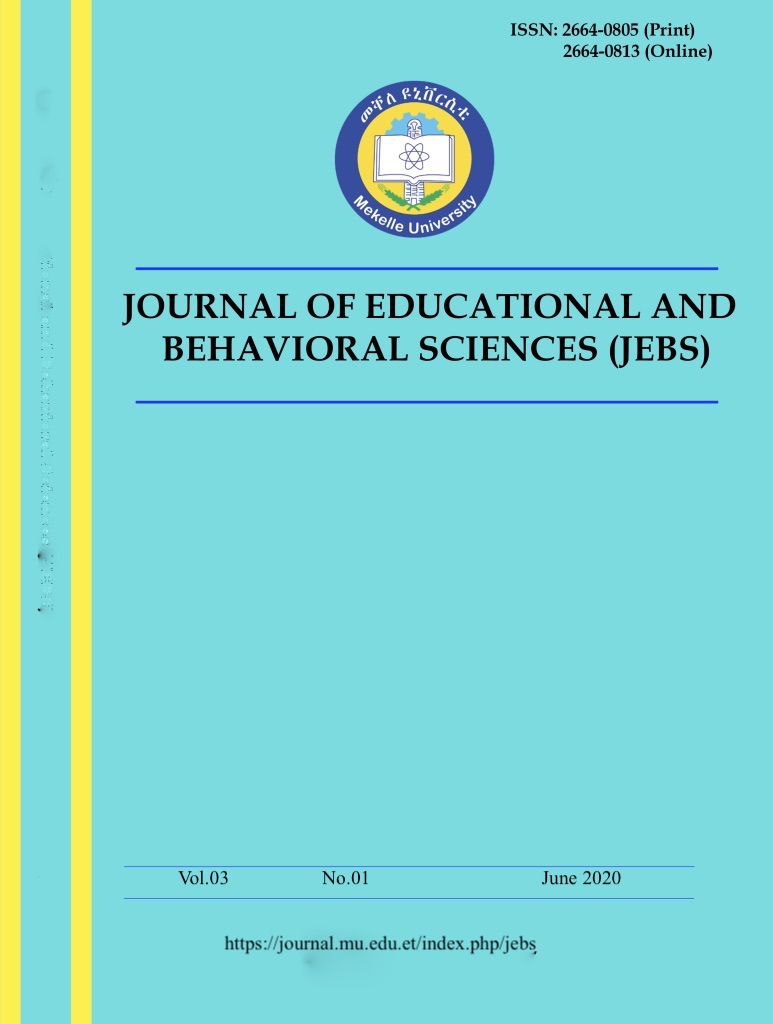Implementation of Higher Diploma Program in Mekelle University (Ethiopia): A CBAM Perspective
Keywords:
Concern Based Adoption Model (CBAM), Implementation Success, Innovation Configuration (IC), Involvement, Level of Use (LoU), Stage of Concern (SoC), StakeholdersAbstract
This study aims to examine the involvement of stakeholders in implementation of HDP, using Concern Based Adoption Model (CBAM) perspective. Hence, mixed concurrent research design was employed. In so doing, 185(25%) out of 726 instructors, 44 (68.8%) out of the 64 department heads, and eleven university academic leaders selected through multi-sage sampling were participated in the study. Data were collected through questionnaire, interview and observation. The questionnaire comprised 35 items on CBAM Likert- scale were employed to solicit pertinent data about respondents’ stage of concern whereas checklist was used to determine their level of use and Innovation Configuration of the components of the HDP. Besides, the university leaders were interviewed to examine their involvement in the implementation success of HDP. Finally, data analyzed using percentages, means, and independent sample t-test revealed that the level of use of the HDP by the instructors and the department heads was at the intermediate level while they had personal, managerial, and consequence related stage of concerns. Hence, the data collected through the three dimensions of the CBAM showed that the stakeholders’ involvement in the implementation success of the HDP was not planned, well performed, and assessed. Thus, it was suggested to develop contextual implementation policies and guidelines which can be used to steer the implementation of the HDP at the university. Besides, the pertinent leaders need to mainstream the implementation of the HDP outputs into their teaching and learning processes.


